Everything You Need to Know About THE GREAT GATSBY
One of the most famous pieces of literature of the 20th century, The Great Gatsby has been adapted for film, stage, television, as an immersive experience, graphic novels, and even video games. When it entered the public domain in January 2021, it was inevitable that he would see even more adaptations of the quintessential Great American Novel.
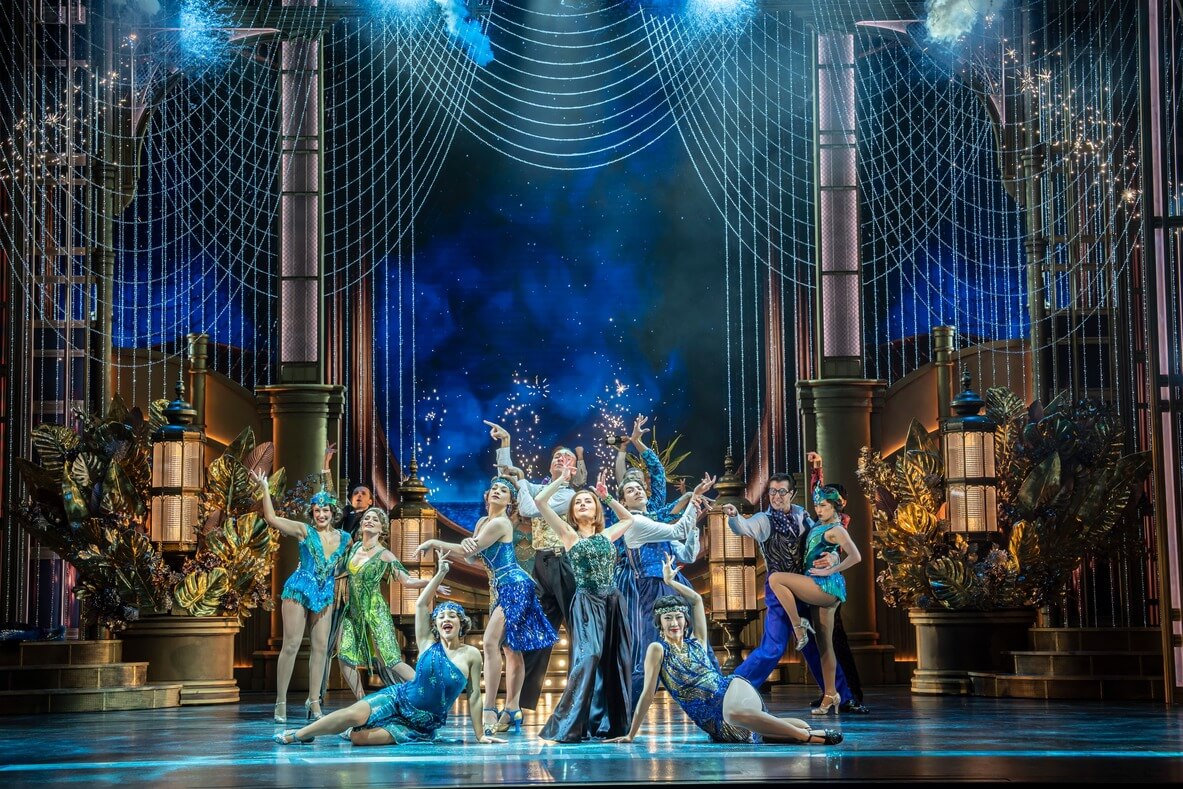 Amber Davies (centre) and the Company in THE GREAT GATSBY at the London Coliseum. Photo by Johan Persson
Amber Davies (centre) and the Company in THE GREAT GATSBY at the London Coliseum. Photo by Johan Persson
Like many famous and beloved books that have been converted into stage shows, this has included not one but two musical adaptations within a year of each other. A musical seems to be the perfect medium in which to adapt a story that’s become synonymous with the Roaring Twenties. But is it?
With a book by Kait Kerrigan and music and lyrics by Jason Howland and Nathan Tysen, The Great Gatsby premiered on the West End in April this year with great fanfare, featuring advertising that invited audiences to the party of the century. But the musical, which is entering its last two months on the West End, has received mixed criticism and often harsh reviews from critics.
So what’s the verdict? Should you go watch The Great Gatsby before it finishes its London run? Let’s break it down.
What is The Great Gatsby about?
Written in 1925 by American writer F Scott Fitzgerald, The Great Gatsby is set in New York during the Jazz Age. War veteran Nick Carraway arrives in Long Island in search of opportunity, and finds himself living next to the mysterious millionaire Jay Gatsby. Gatsby throws decadent parties every night at his West Egg manor - parties he never himself attends, hoping instead to win back Daisy Buchanan, his long-lost love who lives across the bay with her cheating husband, Tom. The novel is famously a scathing social critique of the moral bankruptcy of 20th century society, and a deconstruction of the American Dream.
Is The Great Gatsby faithful to the book?
Stylistically? Yes. The show captures the aesthetics and visuals of the Roaring Twenties, contrasting the glittering decadence of Gatsby’s parties with the grittiness of industrial New York City. Everything from Linda Cho’s costume design - sequined flapper dresses, elaborate headpieces, dapper suits - to the immaculately, intricate designed set to the bold colour scheme works to evoke the hedonistic postwar mood. The set design also recreates some of the book’s most iconic visuals, such as the haunting green light across the bay and the looming billboard depicting the eyes of Doctor T. J. Eckleburg, which mirrors the original book cover.
Thematically, however - the tone of the musical is far less cynical than the book, which was at its core an expression of disillusionment with American postwar society. Instead, the musical leans further into the story’s romantic and comedic elements. The scene where a nervous Gatsby is preparing for tea with Daisy feels like it was pulled straight out of a rom com. The characters, whom Fitzgerald clearly wanted his readers to be critical of, also feel more sympathetic than their book counterparts. Gatsby’s bumbling insecurity makes him endearing, and Daisy’s fickleness and selfishness is toned down to make her appear more tragic. It feels as though we are being fed a sanitised version of the story.
But we can’t fully fault the musical for this. The Great Gatsby as a novel is famously difficult to adapt - adaptations struggle to balance the setting’s striking aesthetics with the seedy underbelly beneath the glossy veneer. Like Gatsby’s parties, style tends to overcome substance. And this isn’t a modern problem. In a letter to his friend Edmund Wilson shortly after the novel was published, Fitzgerald complained that, "of all the reviews, even the most enthusiastic, not one had the slightest idea what the book was about".
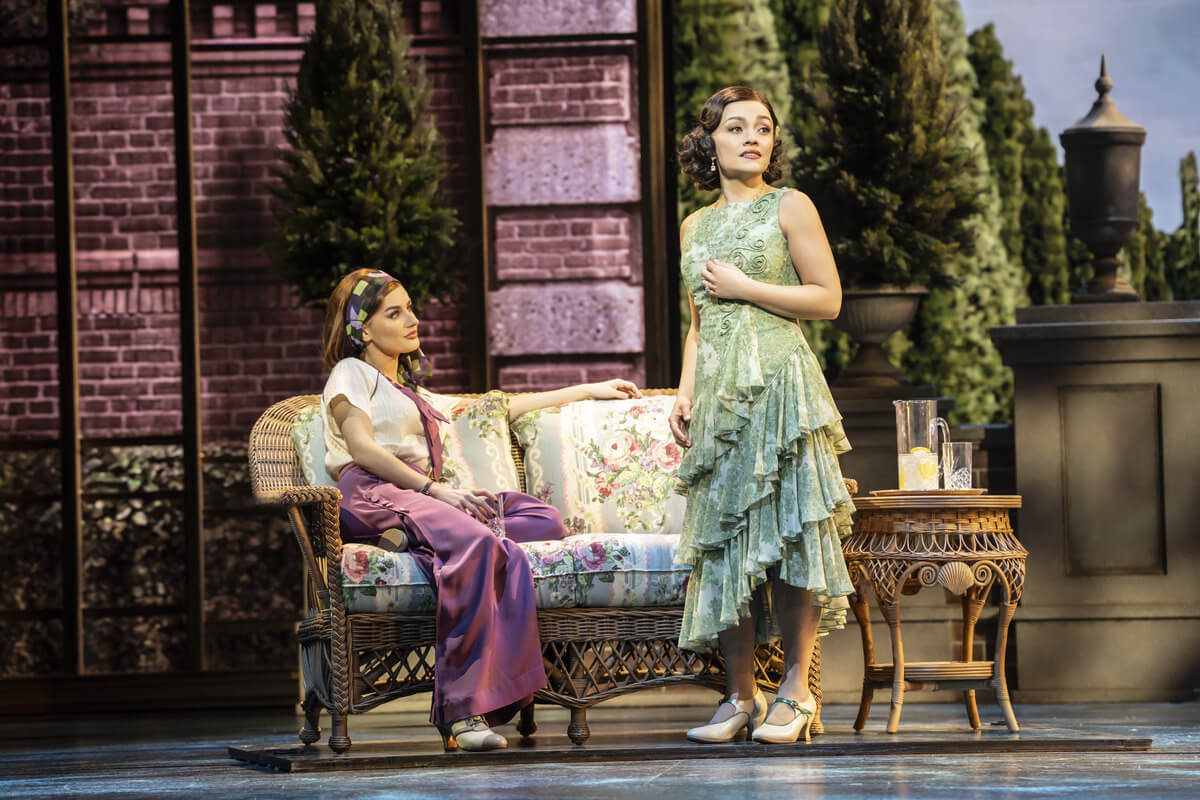 Frances Mayli McCann & Amber Davies in The Great Gatsby at the London Coliseum. Photo by Johan Persson
Frances Mayli McCann & Amber Davies in The Great Gatsby at the London Coliseum. Photo by Johan Persson
What is the best part of The Great Gatsby?
Regardless of what you make of the story, the spectacle of the show will leave you dazzled. Every inch of the cavernous stage is utilised by the elaborate ensemble performances and gorgeous set design. Scene and projection designer Paul Tate dePoo III seamlessly blends full screen sets and physical sets to make it seem as though you’re peering directly into the interior of the Buchanans’ living room, or the sprawling gardens and glittering bay beyond it. Vintage cars trundle across the stage as projections of the New York City skyline rise up behind them, creating a truly immersive experience.
How is the score?
The score by Jason Howland and Nathan Tysen blends jazz with modern pop and Broadway-style ballads. The result often feels slightly anachronistic, but overall has some catchy musical numbers. Early ensemble numbers ‘Roaring On’ and ‘New Money’ are full of bombastic spectacle and return at the end with a cynical reprise to mock the play’s tragic ending. Daisy’s throaty ‘For Better or Worse’ and ‘Beautiful Little Fool’, both brimming with barely contained emotion, paint a tragic picture of her character, as does Myrtle’s screaming, soulful ‘One-Way Road’. ‘La Dee Dah With You’ is the most period-accurate piece, complete with a delightful tap dance routine.
The song lyrics also occasionally weave in quotes from the novel - such as Daisy’s ‘That’s the best thing a girl can be in this world, a beautiful little fool’ and Jordan’s ‘I like large parties. They’re so intimate. At small parties there isn’t any privacy’ - which is a fun nod to book readers.
What about the cast?
You can forgive the slightly sanitised portrayal of these famously corrupt characters because the talented cast brings such humanity to them. Jamie Muscato’s Gatsby lacks some of the charisma of his book counterpart, but has a softly endearing quality. Frances Mayli McCann plays Daisy with a mix of vulnerability and strength. Rachel Tucker and Joel Montague as Myrtle and George Wilson also bring a tragic depth to the often overlooked side characters. Corbin Bleu is endearingly earnest as Nick, and does his best in his monologues to capture the impact of Fitzgerald’s searing, tight prose. Amber Davies steals the show as Jordan Baker, with a snappy energy and sharp wit, and a sizzling chemistry with Nick which makes them outshine even Daisy and Gatsby’s star crossed romance.
Is The Great Gatsby worth watching?
As the advertising for the show suggests, the musical is a bit like attending one of Gatsby’s parties. If you’re looking for fun, spectacle, and a dazzling visual feast, you’ll find it here. If, like Gatsby in his pursuit of Daisy, you’re looking for something more meaningful, which captures the depth and complexity of the novel, you may be a bit disappointed. But if you go in having expected and accepted the limitations of converting such a rich novel into a musical, you might walk out with an appreciation for what this show offers.
The Great Gatsby is playing at the London Coliseum until September 7th.
Latest News
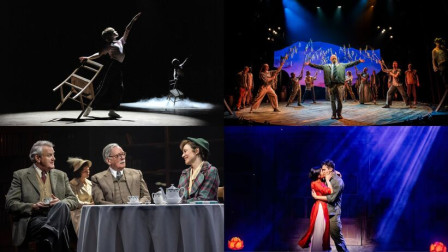
 This Month in the West End (February 2026)
27 February 2026 at 16:45
This Month in the West End (February 2026)
27 February 2026 at 16:45
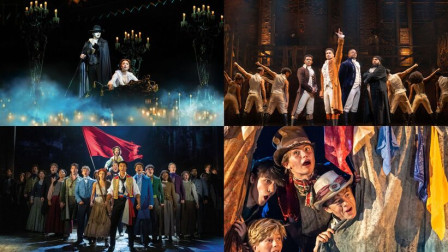
 Cameron Mackintosh reveals extension periods for West End productions to 2027
27 February 2026 at 16:08
Cameron Mackintosh reveals extension periods for West End productions to 2027
27 February 2026 at 16:08
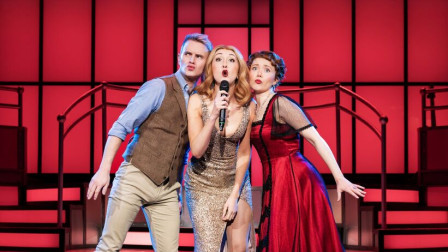
 TITANIQUE announces fourth extension
27 February 2026 at 15:55
TITANIQUE announces fourth extension
27 February 2026 at 15:55
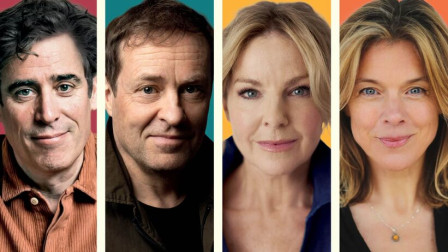
 Florian Zeller’s Olivier Award-nominated comedy 'The Truth' to head to the West End this summer
27 February 2026 at 11:06
Florian Zeller’s Olivier Award-nominated comedy 'The Truth' to head to the West End this summer
27 February 2026 at 11:06
